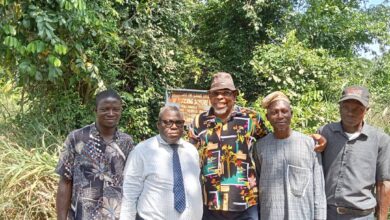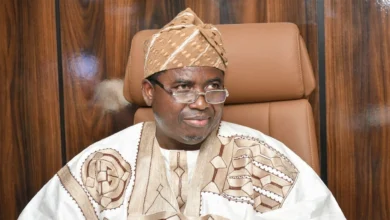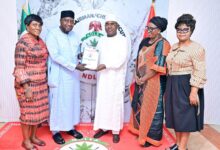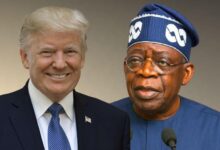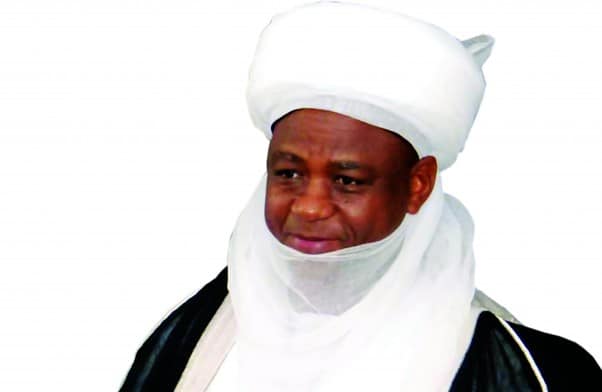
With another successful unified spirit by which this year’s Ramadan was commenced on Saturday May 27 equivalent of Ramadan 1, 1438AH, for a leader with large heart like the spiritual and political Leader of the Nigerian Muslim Community, Alhaji Muhammad Sa’a Abubakar III, it may now be time to have a sigh of relief. His main agenda from the very day he found himself and came to the consciousness of being the Sultan of Sokoto, a very highly influential position in Africa and globe particularly in Nigeria, he set an agenda of particular points for himself.
One of the agenda points was to unite the entire Nigerian Muslims as a united community in the service of Allah. The other being to work amicably with leadership of the Nigerian Christian Community with a view to ensuring mutual understanding and peaceful co-existence between Muslims and Christians in the country for peace, security and development of Nigeria as a nation and, by extension, as a people. Both goals among others are now vividly a mission accomplished.
Before the coming on November 2, 2006 of Sa’ad Abubakar III, a retired Brigadier General of the Nigerian Army and former footballer, as Sultan of Sokoto and President-General of the Nigerian Supreme Council for Islamic Affairs (NSCIA), issue of moonsighting for commencement and termination of Ramadan fast had always been cause of disunity among Muslims in the country with obvious division between Northern and Southern Nigerian Muslims.
Shortly after his emergence, many Nigerians beyond his faith community had concluded that “the new Sultan is possibly the bridge builder” the Muslims of North and South required to bury their differences. They even went further to assert that “it is about time we now begin to see why we should stop hating and killing ourselves” as religious and ethnic people in Nigeria “with the way this just one year old Sultan is doing and his attitude to all.”
As if they prophesied, beginning from two years of his becoming the Sultan and Sarkin Mu’mineen of Nigeria, the Sariki-dan-Sariki (king son of king), which “Sa’ad” is, naturally migrated into the consciousness of all facets of Nigeria’s public life as he became the talk in town, not only for Muslims and Hausa/Fulani people but also, for Christians, Yoruba, Igbo, Ijaw, Itsekiri, Efik, Ibiobio and very many over 350 languages that make the Nigeria’s three major tribes due to his roles in the process of nation building the religious and traditional ways.
The role of the Sultan in the solution, which eventually materialised with the coming of President Muhammadu Buhari, to the Boko Haram menace was one spectacular reason that sold him to the consciousness of the Nigerian Christian Community and the other non-Hausa communities. While the President of Christian Association of Nigeria (CAN), Pastor Ayo Oritsajafor, during the Goodluck Jonathan’s Federal Government of People’s Democratic Party (PDP) was busy sensationalising the Boko Haram damages with the support of some elements in the Nigerian Press, making the problem look like Northern headache that must be left to the North alone to face as price for what he regularly described as their Islamisation agenda, Sultan of Sokoto and Leader of Nigerian Muslims, His Eminence Alhaji Dr. General Sariki Muhammad Sa’ad Abubakar III, mni, CFR, not only denied Boko Haram as Islamisation agenda of Northern Nigeria but more concertedly, he said, that it should be seen as a collective national disaster that must be collectively tackled.
It would be recalled that the Boko Haram in the Jonathan era was a big challenge to Muslims of Nigeria. The stigma was on the high side and sufferings with no hope in sight for Muslims were apparent. Under that terrible experience that every Muslim person was treated by believers of the then CAN leader in government, work places, who readily tagged him Boko Haram and women in hijab became objects of attack and ridicule and more, the Sultan was always up and doing.
He always surmounted courage to speak consistently to protect the dignity of Muslims and guide the Nigerian government under Jonathan on the path to solution on the Boko Haram although Jonathan listened not.. The idea of “talking and fighting are not incompatible so long the interest is the same” now being implemented by the Buhari’s Change Government was the brainchild of the Sultan suggested to Jonathan but which he neglected. The only Nigerian leader that was saying the same thing with the Sultan was Major General Tajudeen Olanrewaju as published in some of his interviews with Vanguard at that terrible period of Nigerian life.
Abubakar asked Jonathan to dialogue with a view to finding out the core of the grievances that turned the Boko Haram members far later described by President Muhammadu Buhari as “misguided brothers” to terrorists and find ways of addressing them with lasting solution. Former President Olusegun Obasanjo only recently corroborated this point when he said Boko Haram became terrorists because they were refused justice (by Jonathan government) over the injustice done against them. But each time the Sultan spoke, there was an Ayo Oritsejafor of CAN, backed by the powers of the land, who would counter him.
The NSCIA President-General however never relented and it was in his not relenting that he assured every Nigerian person, government and institution that Islamisation was impossible just like Christianisation would never be possible. He then was resilient about cautioning the Christians association against the inflammatory comments they freely ran in the media at that period. The resilience paved the way for the easy connection that the Muhammadu Buhari’s Federal Government of the All Progressives Congress (APC) had with religious and ethnic understanding, which saw to the beginning of the defeat of the long dragged Boko Haram terrorism.
As Buhari’s solders led by Lt. Gen. Tukur Buratai turned the table from being on the defensive to the offensive against the Boko Haram fighters that were already at that time hoisting their flag on a territory consisting of 14 Nigeria’s Local Governments, Sultan Sa’ad Abubakar stepped further this time into cross-country fence-mending, educating his Hausa/Fulani people, the Yoruba and Igbo peoples of Nigeria on the need for unity pointing out the areas where “diversity is our strength.” Doing similar thing in his capacity as Sultan and Muslim Leader, he was in Enugu in the build up to the 2015 transition where he outshined all as he spoke convincingly to the hearts of the 11 South-East/South-South Traditional Rulers at their Retreat, held in Nike Lake Hotels in the Coal City. Sa’ad Abubakar was Special Guest of Honour along with then President Jonathan at the retreat where the Igbo and all the South South monarchs naturally confessed to the enigmatic quality of the Sariki Mu’mineen of Nigeria and Leader of the Sokoto Caliphate.
Now on the 11th year of his ascension, Sultan Abubakar III, whose last point of call in his military career before succeeding his elder brother, late Muhammadu Maccido, was the United States of America, can comfortably have a sigh of relief that he has taken Nigerian religious and traditional communities to a point of no-longer-disorderliness, if he chooses to do so. He had always muchmouthed it that “I will not rest until Nigeria becomes great through peace, unity and progress of the Nigerian people regardless of their religious background and ethnic inclination.” He would then caution Muslims and Christians against hate for one another even as he consistently urged them to follow the dictates of their respective holy books, Qur’an and Bible, saying “If we adhere strictly to the dictates of Qur’an and Bible there will be peace in the land and once there is peace it means you have security and then you can talk of development,” he always said.
The peak of it all is that the Northern and Southern Muslims have continued to be united under the sitting Sultan such that the Ramadan fast commencement and termination that had been the points of proof of status of their cordiality now come in uniformity. This year, the Sultan almost did not need to announce the moonsighting because since after the last Ramadan, he had acquainted the Islamic faithful with their responsibility of moonsighting through monthly announcement. This approach made it easier for every Muslim to know the likely time or day the new moon should be expected. It worked and all Muslims of Nigeria, under Sultan Sa’ad Abubakar, are now free from the misconceptions and misleading of some self-centred clerics in the Muslim community. They are now happy that Sultan Abubakar is their leader, therefore.


